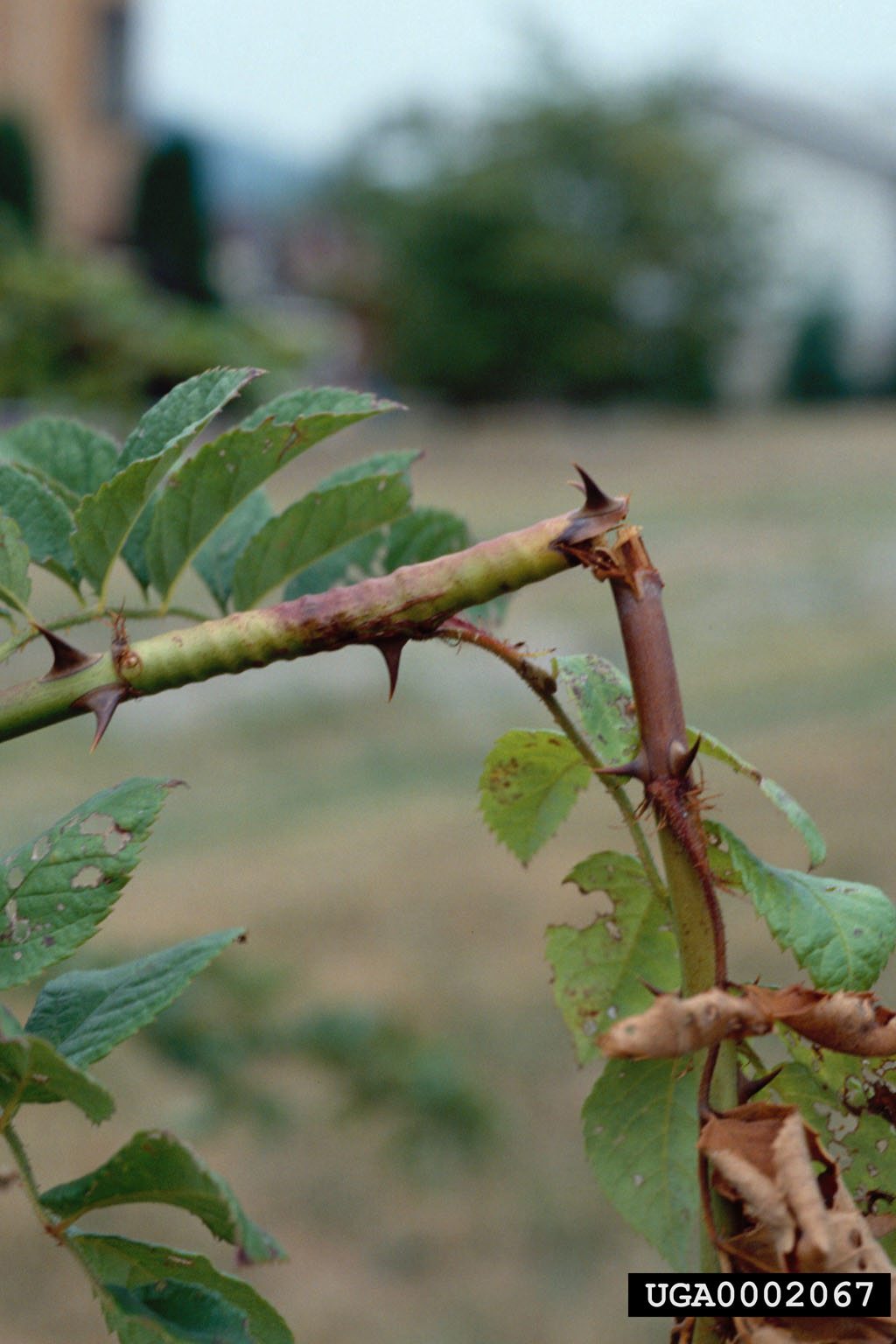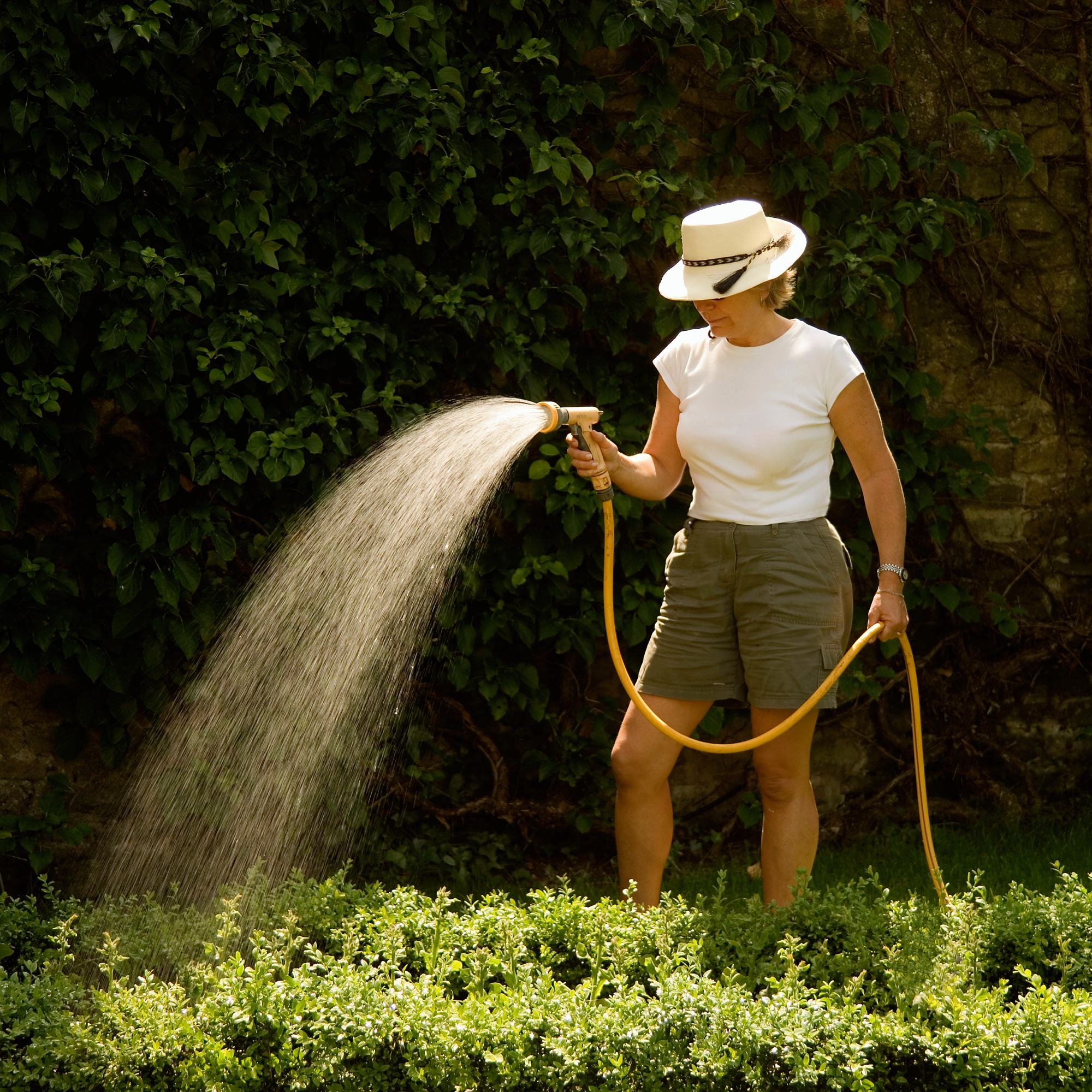Rose Stem Girdlers - Tips For Controlling Rose Cane Borers


There are good guys and bad guys in our gardens. The good bugs help us out by eating the bad guy bugs that like to eat away at the foliage on our roses and destroy the blooms on our rose bushes. In some cases, what may appear to be a bad guy bug really is not, such as the case of the cutter bee which cuts little shapes out of rose leaves to make its nest. Then we have the rose cane borers. While maybe just doing what they need to do to survive, boring into our rose canes to lay eggs and seek shelter for their young, this action causes harm, and sometimes death, to our rose bushes. Read on to learn more about these rose stem girdlers.
What are Rose Borers?
There are actually several wasps and bees that nest in the center pith of cut rose bush canes. The cane boring insects bore a hole down into the center pith of the rose canes in order to create nests for their young. The two most common cane borers are actually small wasps. They are very active at seeking out the cut ends of rose canes to bore down into from early spring all the way through early fall. The most common cane borers are predators of aphids and use them to feed their young, thus they are a mix of good guy and bad guy in our rose beds. Rose borer damage can be easily spotted by the hole they leave in the center pith of the cut rose canes. Girdling may also be seen along the stem. The depth of the boring itself may only be a few inches (8 cm.) deep, while the most damaging and life threatening to the rose bush can go all the way to the main crown of the plant.
Controlling Rose Cane Borers
A good way to help prevent them from boring into the ends of rose canes is to seal the cut ends immediately after pruning or deadheading (the removal of old spent blooms). The use of Elmer's multi-purpose glue or the white tacky glue available at craft stores is great to use for sealing the cut ends of the canes. Once dry, the glue creates a good hard cap over the ends that make it difficult for the cane borers to do what they desire to do. Thus, they will look for an easier target. Be careful what you use to seal the canes, as some paint, fingernail polish, and wood glues contain chemicals that will cause slight to severe die back of the cane that it is applied to, making the need for pruning again and losing more of the rose cane. Also, the “school glue” should not be used for this sealing purpose as it tends to wash off with watering or rainfall, leaving the end of the canes unprotected. Once the cane borer damage is spotted, the cane should be pruned down far enough to get below the borers hole and nest. This pruning can be significant due to some of the borers liking to bore as deeply as they can. Once the cane is pruned below the boring and nest, seal the end of the cane with the white glue and make sure the entire cut end of the cane is well covered. Do not apply the glue so abundantly that it runs down the sides of the cane; just make a nice cap on the canes. Should the glue run down, however, wipe this excess off with a damp cloth or towelette. It is good to have some damp paper towels with you when you go to the rose bed or garden to perform this task.
Rose Cane Borer Treatment
Should the borer have made it all the way to the crown of the rose bush, use a needle to probe the hole lightly that extends into the rose crown. In this way, you may be able to remove the nest and sometimes the culprit borer. Do not probe around too much so as to cause more harm though. Once done with the probing inspection, seal the bored hole with the white glue and sprinkle lightly with some surrounding garden soil. If the borer and/or nest have been removed, the bush should be able to overcome the intrusion. It is extremely important to prune the bored cane well enough to remove the nest; otherwise, a new crop of cane borers will mature to bring about more damage to the rose bushes. Good rose bed inspection and sealing of pruned rose canes are the best preventatives for cane borer damage. While systemic rose bush insecticidal additives may be somewhat successful, the damage they can do to the balance of the beneficial organisms in the soil of the rose bushes may not be worth it.
Gardening tips, videos, info and more delivered right to your inbox!
Sign up for the Gardening Know How newsletter today and receive a free copy of our e-book "How to Grow Delicious Tomatoes".

Stan V. Griep contributed to Gardening Know How for many years, and has been a Colorado Native Rosarian for over four decades. He is an American Rose Society Certified Consulting Master Rosarian in the Rocky Mountain District, and a member of the Denver Rose Society, the Loveland Rose Society, and the American Rose Society. He is Gardening Know How's in-house expert on all things roses.
-
 When Is The Best Time To Water Plants? Expert Guide To Keep Plants Happy Even In The Heat
When Is The Best Time To Water Plants? Expert Guide To Keep Plants Happy Even In The HeatProper watering can make or break your garden. Learn the best time to water plants so your garden can be healthy all summer long.
-
 These 350 Amazing Private Gardens Across The US Are Normally Off-Limits, But You Can Visit Them This Summer – Find One Near You
These 350 Amazing Private Gardens Across The US Are Normally Off-Limits, But You Can Visit Them This Summer – Find One Near YouDon't miss the chance to visit these local gardens offering a memorable day out and a wealth of inspiration for new and experienced gardeners alike.